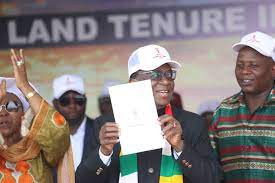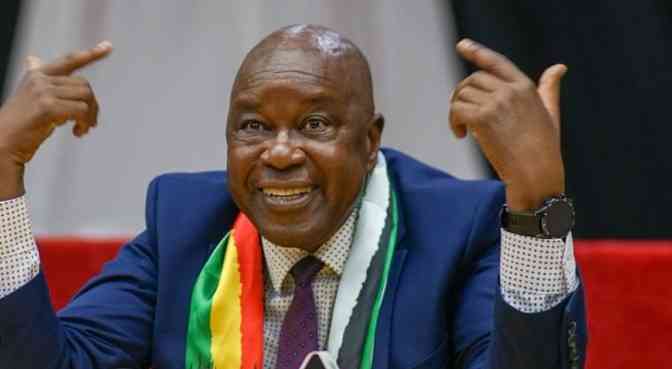
As Zimbabwe strides towards achieving its ambitious Vision 2030 of an upper-middle-income economy, secure land tenure emerges as a vital component of the country's economic development and public health strategy.
President Emmerson Mnangagwa's initiative to issue title deeds to property owners is a landmark step towards economic empowerment and public health improvement, unlocking a new era of growth and prosperity.
The TitleDeeds4ED affiliate, under the leadership of national chairperson George Dhliwayo, is amplifying the president's voice, spreading awareness about the transformative benefits of secure land tenure.
Secure land tenure is the foundation upon, which economic growth and stability are built.
President Emmerson Mnangagwa aptly notes that “Secure land tenure transforms property into a financial asset, unlocking wealth through credit access, investment, and market participation”.
This concept is further underscored by Kudakwashe Tagwirei, chairman of the National Lands Committee, who defines land tenure as a system of rights, regulations, and institutions governing land ownership, use, and transfer.
This vision is becoming a reality, thanks to the collaborative efforts of the government and TitleDeeds4ED.
The benefits of secure land tenure are multifaceted and far-reaching, with formal land titles empower individuals to access credit, invest in their properties, and participate in the market with confidence.
- Mr President, you missed the opportunity to be the veritable voice of conscience
- ED to commission new-look border post
- Zanu PF ready for congress
- EU slams Zim over delayed reforms
Keep Reading
This, in turn, triggers a surge in property values, improves agricultural productivity, and reduces the risk of eviction, thereby creating a stable economic environment.
Moreover, secure land tenure promotes gender and social equity, ensuring equal opportunities for women and marginalised groups to build wealth and prosperity.
The connection between economic empowerment and public health is undeniable because securing land tenure has a direct impact on public health outcomes, as individuals are more likely to invest in their health and well-being when they have control over their properties.
On fact, reduced stress and anxiety, improved living conditions, and increased access to healthcare services all contribute to better public health outcomes.
In Zimbabwe, where the burden of disease is significant, secure land tenure can be a vital tool in improving the overall health and well-being of citizens, thereby reducing the country's disease burden.
TitleDeeds4ED is playing a pivotal role in promoting the President's initiative, working tirelessly to spread awareness and support the government's efforts.
The affiliate's efforts are unlocking the potential of Zimbabwe's land reform, enabling citizens to harness the economic benefits of secure land tenure.
In conclusion, secure land tenure is a critical driver of Zimbabwe's economic development and public health strategy.
The president's initiative to issue title deeds to property owners is an important way of empowering citizens, promoting economic growth, and improving public health outcomes.
As we march towards Vision 2030, it is imperative that we all continue to support this initiative like TitleDeeds4ED, which is working with the relevant offices to ensure that the benefits of land reform are equitably distributed.
I believe that with collective effort and strategic initiatives, Zimbabwe will absolutely build a brighter future, where economic empowerment and public health go hand in hand, driving the country towards a prosperous and healthy future.
Clever Marisa (PhD) is a social scientist and public health practitioner. The views expressed here are his own and do not necessarily reflect the views of his affiliated institution or any organisation.











